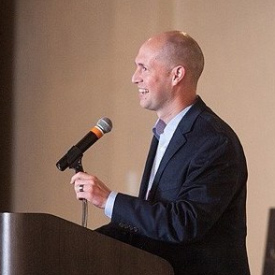Group Therapy
For my Rhetoric II students, the class of 2013 at Covenant Classical School:
I have taught rhetoric for years. My syllabus is detailed, my scope and sequence nearly memorized. No braggadocio intended, but I can teach much of the course without notes. And, while in writing I try to avoid clichés like the plague, you could say that teaching rhetoric is “old hat” to me.
Or perhaps it would be if not for my students.
Our Rhetoric II course leads to the annual senior thesis in May and though I have been through it year after year, my students have not. It is all new to them and so is the anxiety. And, when combined with the pressing deadlines of college essays, college applications, scholarship forms, campus visits, part-time jobs, and the workload of a typical senior year, they are feeling overwhelmed – and understandably so. After all, if modern education has perfected anything, it is the production of anxiety in students, parents, and teachers.
So, on occasion, the lesson plans are set aside for what I affectionately call “group therapy.” The years have taught me to sense when it’s coming. Some seniors trudge into the room, coffee in hand, bleary-eyed from lack of sleep or crying (sometimes both), unable to speak above a mumble, dragging along so low I don’t have to open my classroom door. Others arrive, bigger cup of coffee in hand, jittery, still sleepless but wide-eyed, and nervous. But the real telltale sign comes with one question: “So, how is everyone?” The response, so far from overwhelming that it could scarcely be called “whelming,” speaks of so much more than that particular morning.
Sometimes they need a speech. They need to be inspired. They need to hear that all their hard work is preparing them to fly, even to soar, from the nest into the next stages of their lives. At other times, they really need to talk, to ask every stabbing question that keeps them awake. They need me to be quiet and listen, to vent about the seemingly mountainous demands on their time, to express how unprepared they feel for what’s in front of them.
Frankly, it’s nothing new for me. I hear these questions, rants, and emotions come out every year. But they come from different souls, so I receive them all as brand new.
Adults tend to view the problems of youth through the lens of adulthood and, while that can provide some needed perspective, it can render us unhelpful or condescending. My students have never had this much responsibility. For years, they have asked to be treated like adults and now they wish they could take it back.
I know that countless others, me included, have been precisely where they are. I know that the joy on the other side far surpasses the work they now face. I know the success stories of those who felt what they now feel. I know that the “to do” list they now face is infinitely smaller than the ones they will have later in life. I know they will sail through their thesis, get into college, and be miles ahead of their contemporaries. I know they have little to worry about.
But they don’t.
So I listen, knowing they will be just fine and that, one day soon, they will know it too.

Brian Phillips
Dr. Brian Phillips serves as a pastor in Concord, NC, where he lives with his wife and their four children.









